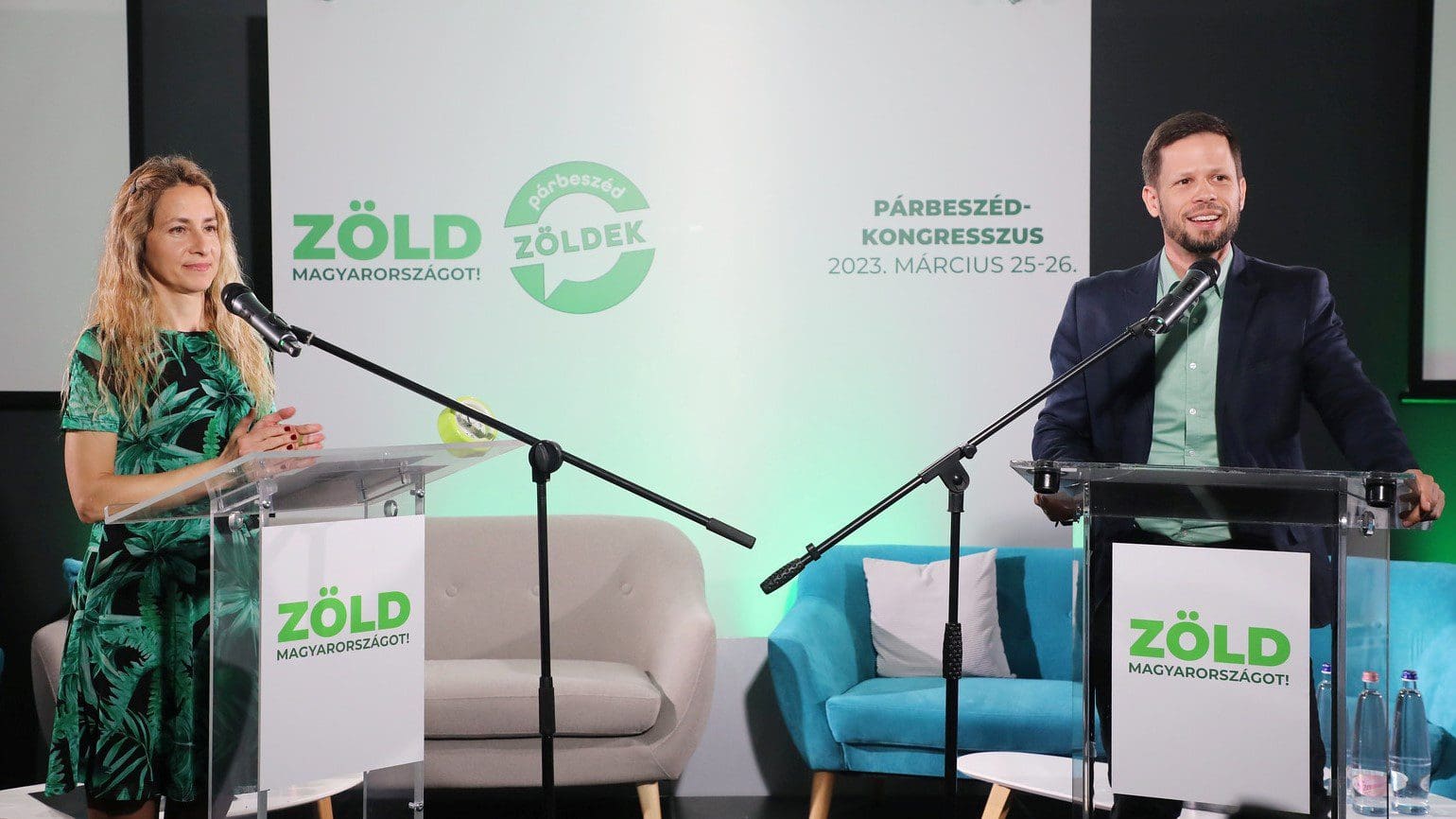The opposition Párbeszéd will change its name to Párbeszéd–Greens (Párbeszéd–Zöldek) and Benedek Jávor will head the party’s list at the European Parliamentary elections, party co-leaders said on Sunday, announcing decisions made at a party congress on the previous day.
Jávor is currently Budapest Mayor Karácsony’s advisor and head of the Budapest Municipality’s Brussels office as well, pro-government papers have highlighted. Jávor started his political career as a founder of LMP, but soon enough, like most of the current Párbeszéd leaders, defected and founded Párbeszéd in 2012.
The name change may be a desperate attempt to lure away the few voters LMP, Hungary’s only professedly green party, still has, as polls regularly measure close to zero support for the party in the entire population, with Nézőpont having recorded a support of one per cent in February. The party entered an election alliance with the Socialists and DK in 2022, and thus managed to obtain a few parliamentary mandates, without any real voter support.
Jávor, a biologists and green activist by profession, was an MEP between 2014 and 2018, after obtaining a seat as the second placed on a joint list of Párbeszéd and Együtt (a party even less successful than Párbeszéd which was dissolved in June 2018) after first places Gordon Bajnai, ex-Socialist PM who replaced the digraced Ferenc Gyurcsány in 2009, resigned from his seat.
So Jávor’s record as a politician is rather weak.
Párbeszéd co-chair, MP Bence Tordai said at the event ‘Direction: 2024!–Párbeszéd for a Green Hungary’ that green politics start when we understand what sustainability means and that there is a problem with the system itself, its basic logic, mindset, and operation. The co-president emphasised the need to build a green Europe and a green Hungary, represent green solutions, and apply green principles at all levels of decision-making, locally, nationally, and in the EU as well. This is why they decided at the congress to continue their work under a new name, Tordai noted.
He added that only comprehensive, interconnected decisions make the future liveable. ‘There is no orange future, no blue, purple, and especially no brown future, the future will be green, or it will not exist,’ Tordai declared.
The female co-president, Rebeka Szabó highlighted that their party also represents the green idea in local governments, and in the 2024 local election campaign, they strive to increase the number of green-committed representatives and local leaders. Szabó announced that they had elected Jávor as their list leader for the EP at their congress. She believes that with him, a green politician who has proven himself multiple times, ‘green Hungary can be represented in Europe and green Europe in Hungary.’
In the first panel discussion following the co-presidents’ speeches, Jávor called it a strategic issue whether political parties committed to Hungarian green values can ‘channel’ the societal mindset shift. The task is to offer people alternatives that they believe these ‘political formations’ can represent their perspectives and interests at local, national, and EU levels and provide answers to them, said Jávor said. Tímea Szabó, the leader of the Párbeszéd parliamentary group, suggested at the panel discussion that
‘what is green is always left-wing,’
and that reducing inequalities in Hungary and worldwide is just as important for greens as it is for social democrats.
Budapest Mayor Gergely Karácsony emphasised that Budapest is a ‘wonderful metropolis’, but in order for the city to be lovable and liveable, it needs to ‘slow down’ and build the ‘mosaic of small towns in the big city’. He added that it is important to understand that the city is not just a transportation corridor, but the place where we live. He stated that beyond the ensuring sustainability task—since cities must lead the way in slowing down climate change—they also have a social mission, which is to ensure that no one in Budapest has to freeze on the street or in their own home. The city management works every day to make life in Budapest more beautiful and fulfilling, he said.
In the second panel discussion, several Párbeszéd-affiliated municipal leaders spoke about their work, including Márta V. Naszályi, the controversial mayor of the 1st district, who has lost the support of even the majority of the opposition assembly members in the Castle District she heads. She claimed that the municipality she leads is different from the previous Fidesz-led one in that it also cares about people who do not live or work in the Buda Castle.
Related Articles:







